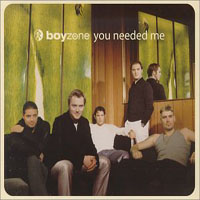Piano Sheets > Boyzone Sheet Music > You Needed Me (ver. 2) Piano Sheet
You Needed Me (ver. 2) by Boyzone - Piano Sheets and Free Sheet Music

About the Song
Other avaliable versions of this music sheet: Version 1 Version 2 Version 3 Version 4 Version 5
"You Needed Me" is a popular song written by Randy Goodrum, who describes it as being about "unconditional undeserved love." It was a number one single in the United States during 1978 for Canadian singer Anne Murray. The song, included on her 1978 album Let's Keep It That Way, was also a top-five country single and won Song of the Year at the Academy of Country Music awards. The Anne Murray version was number one in Malaysia for ten weeks. Curiously, although the song reached number one on the Billboard Hot 100, it reached only the top five on the two Billboard charts where Murray had the most success - Country and Adult Contemporary.
"You Needed Me" was also Murray's biggest hit in the United Kingdom, where it reached #22.
In 1979, Kenny Rogers and Dottie West released a cover on their album Classics.
Anne Murray re-recorded the song with Shania Twain for Murray's 2007 album Anne Murray.
Download this sheet!
About the Artist

Random article
Everything about piano sheet music Sheet music has a history of its own, dating back to the 19th century. In those days, musicians would play classic compositions using sheet music piano. Later on, when bands started performing, music sheets were back in vogue as a means to recreate these old compositions.
What is it?
Sheet music is nothing but a written notation of the piano notes. Depending on what musical composition the sheet music is for, the musical notes written will also differ. Most people have a wrong notion that it is only the popular compositions, which have recorded onto sheet music piano. However, several unfamiliar compositions have also been recorded using sheet music.
(More...)
